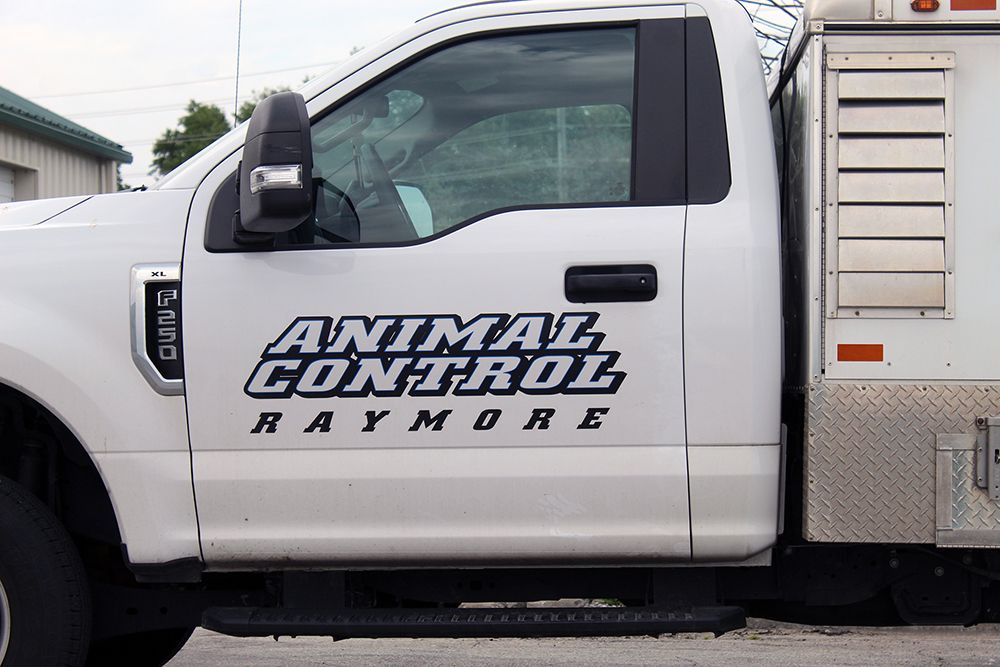
Amendments made to neighborhood vehicle and animal control codes
By Raymore Journal staff
The city council has agreed to amend several chapters of the city code, including neighborhood vehicles and animal control.
Chapter 341: Operation of Neighborhood Vehicles on Public Streets
Raymore City Code Section 341 authorizes the operation of neighborhood vehicles on certain public streets. The proposed amendments clarify the definition of “Neighborhood Vehicles,” align the vehicle equipment requirements with inspection requirements, and broadens the scope of those able to perform inspections.
Specifically, a neighborhood vehicle is now defined as “A vehicle that is defined in Section 304.029 RSMo. to include but not limited to golf carts, ATVs, and UTVs.” Section 304.029 RSMo. uses the federal definition of a “low-speed vehicle” to mean a motor vehicle that has four wheels, whose speed attainable in 1 mile is more than 20 mph and not more than 25 mph on a paved level surface and has a gross vehicle weight rating of less than 3,000 pounds.
Additionally, city code will require neighborhood vehicles equipped with a windshield to conform with the federal motor vehicle safety standard on glazing materials. Also, neighborhood vehicles must have a vehicle identification or serial number.
Neighborhood vehicles more than two years old must pass an inspection conducted by an inspector as authorized by the City of Raymore. Inspections will consist of the following:
- Headlamps are existing and operational.
- Front and rear turn signal lamps are existing and operational.
- Taillamps are existing and operational.
- Reflex reflectors: one (1) red on each side as far to the rear as practicable, and one (1) red on the rear.
- Exterior mirror mounted on the driver’s side of the vehicle and either an exterior mirror mounted on the passenger’s side of the vehicle or an interior mirror.
- Seatbelts installed to cross the lap portion of all passengers.
- Headlights, taillights, and brake lights must emit light visible at night under normal atmospheric conditions on a straight, level, unlighted roadway at five hundred (500) feet.
- If equipped with a windshield, it must conform with the Federal motor vehicle safety standard on glazing materials (49 CFR 571.205).
- Vehicle Identification or Serial Number.
- Brakes and brake lights are operational.
- Parking brake (if equipped) is operational.
- Steering column is operational.
- Flag (not less than 30 square inches in area) extending not less than 1 foot above the canopy of the vehicle or not less than 7 feet above the ground if the vehicle is not equipped with a canopy.
- No less than four wheels.
- No less than 2/32 inch of tread depth remaining on each tire, there are no visible tire threads or cords showing and there is no visible rubber separation
Chapter 205: Animal Control
The purpose of the Raymore City Code Section 205 is to protect the public health, safety and welfare of the animals and citizens of Raymore. The proposed amendments have been determined to be in the best interest of the public health, safety and welfare of the citizens and animals.
One major change to the animal control code is the removal of licensing. Currently, city code requires residents to register cats and dogs. However, the city is not enforcing that rule. Amendments officially strike the licensing requirements from the record.
An amendment to Section 205.115: – Impoundment allows for euthanizing animals at the discretion of animal control officers. The new rule reads “In such instance a dog or cat arrives at the shelter in so sick or injured a condition that in the judgment of the Animal Control Officer or a licensed veterinarian, human compassion requires the suffering be promptly ended, the time period shall not apply and the animal will be humanely euthanized to prevent needless suffering.”
New amendments also give animal control officers more discretion to impound animals. In extreme cases of neglect or cruelty, an animal can be placed on a 72-hour hold. A court order can extend that 72-hour impoundment if needed. The owner of the animal will be liable for all expenses.
All dogs must be confined by fencing or a pen with minimum dimensions of 5 feet by 10 feet and must have secure sides and top. Enclosures must provide protection from the elements. Dogs cannot be kept nearer than 5 feet from any public street, sidewalk, or neighboring property. Furthermore, no dog deemed dangerous per city code can be confined by electric fence or electric collar.
Lastly, a new code addresses the tethering of a dog. Specifically, no one can tie their dog down on their property unless it is for a period of no more than 30 minutes at a time and no more than three hours within a 24-hour period.

Cass County man charged for role in Jan. 6 Capitol insurrection
By Raymore Journal staff
Property tax season began in November, and the numbers already suggest that Cass County’s economy is thriving.
For the month of November, Cass County distributed nearly $36.5 million in property tax revenue. According to Cass County Collector Chris Molendorp, that is the largest November property tax disbursement in county history.
Raymore received nearly $1.3 million, second only to Belton’s $1.7 million portion and followed by more than $360,000 to Pleasant Hill. Peculiar took in more than $280,000.
Schools raked in the biggest piece of the pie, with Cass County public school districts receiving more than $24 million. Raymore-Peculiar R-2 collected $9.5 million, followed by $5.8 million to Belton R-124 and $3.1 million to Harrisonville R-9.
Emergency services are also recipients of property tax dollars. South Metropolitan received $1.7 million, the most among the 14 fire and ambulance districts. West Peculiar Fire and Ambulance received more than $550,000. Nearly $400,000 was given to Pleasant Hill Fire.
Other disbursements include nearly $1.2 million to the library, nearly $600,000 for hospital maintenance, more than $250,000 for the junior college and more than $200,000 for the sheltered workshop.
For the most part, Cass County’s economy is doing relatively well. Currently, the county has a 2.5% unemployment rate, well below the 4% national rate and 3.7% statewide rate. According to the U.S. Census Bureau, the county’s median household income is nearly 11% higher than the national median.
According to data from the Massachusetts Institute of Technology, the living wage in Cass County for one adult is $14.55. Comparatively, the national living wage is more than $16. On the other hand, the county’s living wage is higher than the state average of $13.72.
Expenses at the county and state level are nearly identical, including food, childcare, medical and transportation. However, increases in housing and taxes make Cass County a bit more expensive statewide, but the same as its Jackson County neighbor.